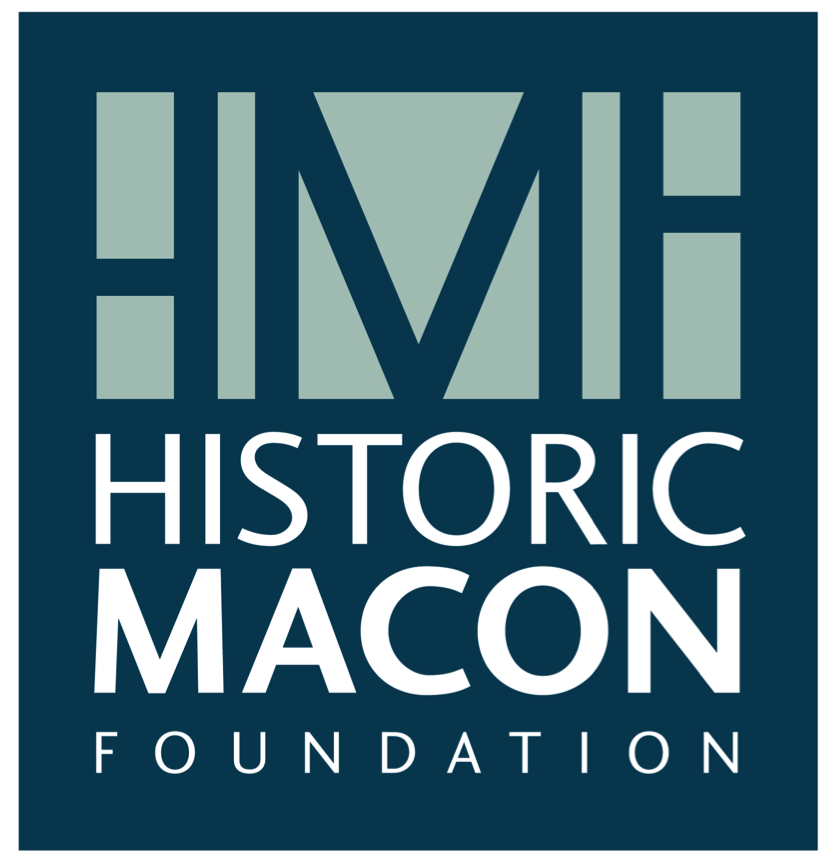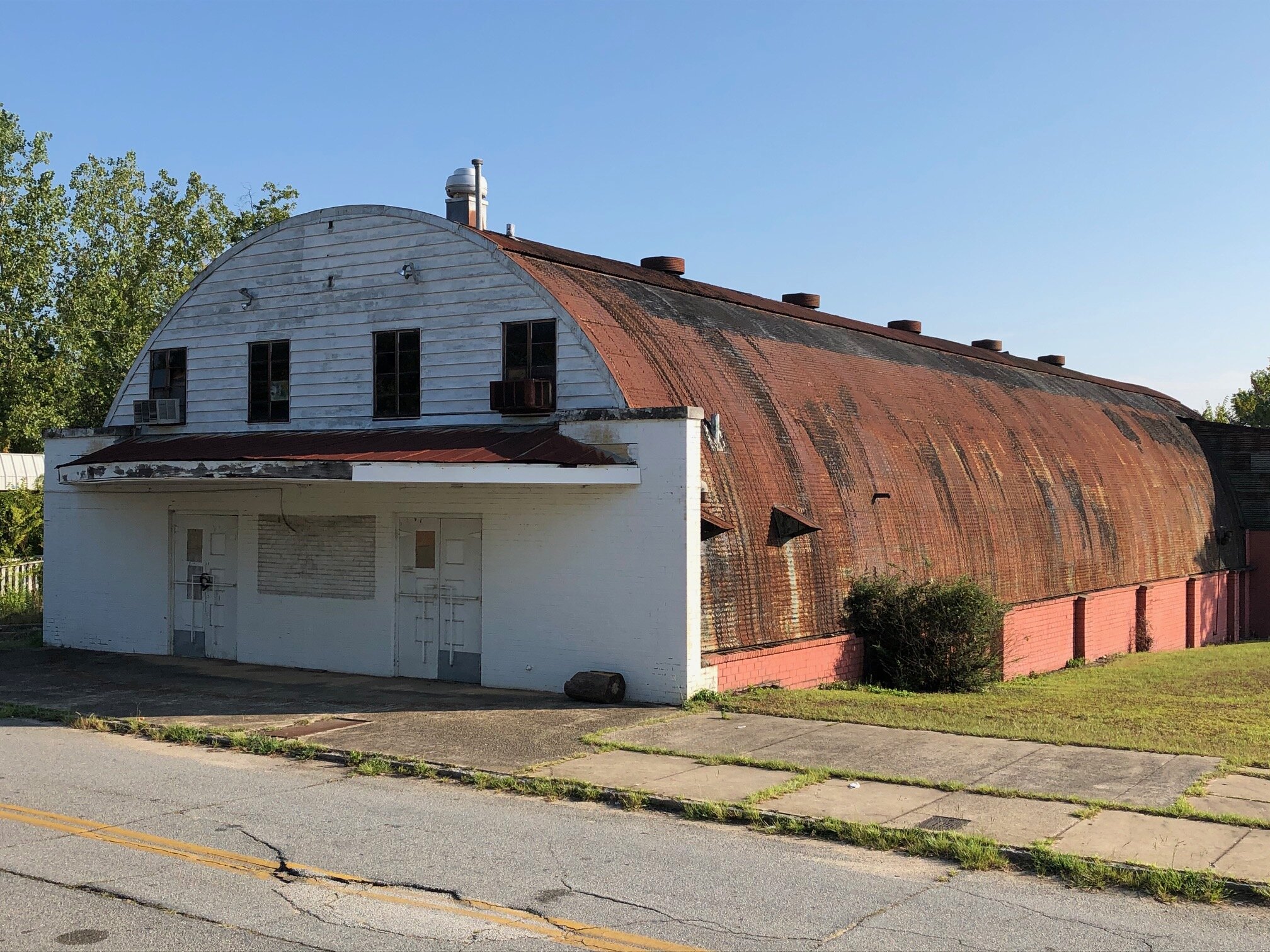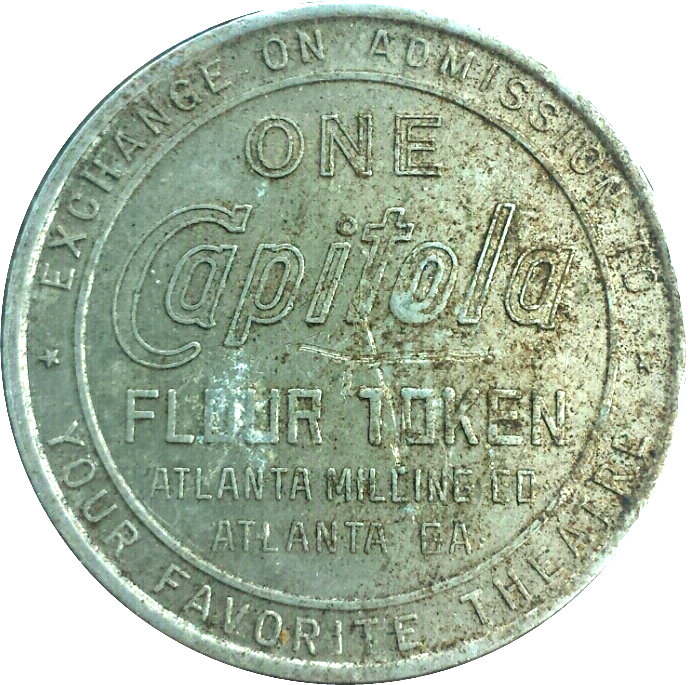Betty Freeman can close her eyes and see the line of people stretching all the way down to Broadway.
Betty Freeman (Photo by Dsto Moore)
“They came from everywhere,” she said. East Macon. Tindall Heights. Fort Hill. The Pleasant Hill neighborhood.
She remembers the laughter, the anticipation, the excitement of going to the Roxy Theatre with her friends on Saturdays.
“It brought people together,” she said. “It was something we could call our own.”
She was about 9 years old. She and her twin brother, Jim, would go at least twice a month.
She loved the Bugs Bunny cartoons right before the main feature. Often, that would be a Western starring Roy Rogers, Gene Autry, Rex Allen or maybe the Lone Ranger.
The Roxy, built by Phil Kaplan, opened on Hazel Street in late 1949 as a venue for Black patrons during the Jim Crow era. Now, the Quonset hut-style building is on Historic Macon’s Fading Five list of endangered places across the county. HMF will also nominate it for inclusion on the National Register of Historic Places.
Freeman said her grandmother talked about the Roxy “all the time.”
Of course, it was hard not to notice. It’s right across the street from the home Freeman grew up in — and has lived in all her life.
“It was segregated,” the 71-year-old said. “We couldn’t go into the white theaters. That was the main entertainment we had. We had a TV, but it was black and white, a small screen.
“When you’d go to the theater, it was exciting to see people on that big, wide screen.”
She remembers the marquee outside the theater, advertising the current shows, and wonders what happened to it.
The old Roxy, with marquee intact.
You can’t talk about going to see movies at the Roxy back then without mentioning Capitola Flour. Inside those sacks of flour were metal tokens you could use for free admission.
A Capitola movie token
“We mostly got in on those Capitolas,” Freeman said, laughing.
She had a Plan B, though. When there were no tokens or they didn’t have the money, she and her friends would sit on the bank of her front yard and at least get periodic peeks through the theater’s front door when it opened.
“We were lucky to be directly across the street.”
A young James Brown, the Godfather of Soul
There were also talent shows at the theater. Otis Redding sang there. Freeman says James Brown and “Little Richard” Penniman performed there too.
“We had a lot of important people who started out at that theater.”
(Brown and one of his first bands, the Famous Flames, recorded a lean version of what became his first hit, "Please, Please, Please," in the basement of radio station WIBB in 1955.)
Freeman remembers Little Richard pulling up outside the Roxy once and stepping out of a limo. Even when he made it big, she said, “Whenever he came to town, he’d always stop in front of the Roxy for a few minutes.”
Redding once worked at the Quick Car Wash right down the street across Broadway, she said. Her mom worked there too for a time.
Guys at the car wash would tell Redding: “You ain’t never gonna make it singing,” Freeman said.
“The theater was a good thing. It was good for our area” — the Greenwood Bottom neighborhood. “It brought people together. That’s what I liked about it.”
It was also a balm for the area, including the nearby Tybee neighborhood, which faced its share of challenges. Toward the end of the Roxy’s run and soon afterward, homes in the Tybee neighborhood began coming down, making way for “urban renewal,” said James Timley, a former Macon City Council president who led a tour of the area recently. City officials blamed substandard housing and the area’s “crime-ridden” environment for much of the demolition.
This plaque on Martin Luther King Jr. Boulevard gives a concise history of the Tybee community.
Equncer High (Photo by Oby Brown)
Equncer High was born on Ash Street, one street over from Hazel. So it was easy to get to a movie at the Roxy, which she and her friends called “the show.”
The children would ask each other: “Y’all going to the show today? … Yeah, ’cause we got us a Capitola!”
They even had curbside service.
“Daddy would put all three of us in a wheelbarrow and take us over.”
She thinks it cost 9 cents for children to get in. Maybe a dime.
The theater sold popcorn, candy, cookies and drinks. “But we didn’t have that kind of money to buy that,” High said.
Her brother, Martin Kendrick, worked there.
She remembers how soft the red, leather seats were.
She loved Esther Williams movies.
“We would always sit down near the front — all us kids,” the 81-year-old said. “We used to have that theater full on Saturdays.”
A man named Leroy Scott would walk around checking on people with flashlights.
“Y’all down here cuttin’ up?” he’d ask sternly. “I’ll put y’all out for two weeks!”
If that happened, High and her friends would just walk down to the Douglass Theatre, about a mile away.
She saw more than movies at the Roxy. There was a dancer named Shirley Hill and a singer named Bill Jones. She heard a band there once called Patty Cake.
“We were around there all the time.”
The whole area bustled with business. There was the B&B Service Station at Hazel and Third, where you could also catch a cab and get something to eat in the back. (She says the H&H Restaurant actually started there before moving to Broadway, then Forsyth Street.) The car wash. The Floyds’ store.
Whatever they did, though, they made sure to get home on time.
Her dad told her: “When that street light comes on, you better be home.” He’d take a switch to the children if they were late.
“Our parents didn’t play,” she said. “Kids didn’t run the street and cut up like they do now.”
Ronnie Gary (Photo by Oby Brown)
The Roxy — one of three Macon theaters for Black residents — was “part of our Black history,” said Ronnie Gary, 72, a retired letter carrier.
He grew up in the old Enterprise Homes off Broadway, up near what is now Eisenhower Parkway.
There wasn’t a lot for a 10-year-old to do at the time, so the Roxy was a big deal to the kids.
There was the Douglass, Grace Hill swimming pool on Dempsey Avenue and a nearby baseball field where future major leaguer John “Blue Moon” Odom once played.
“That was the entertainment for Black folks,” he said. “You came here. We enjoyed ourselves. You’d go in and have fun and watch the movies.”
He remembers Mr. Lester’s filling station down the street, a pool hall and McLendon’s Cafe around the corner.
“There was no fussin’ and fighting — none of that stuff,” he said. “We had fun. It was safe.”
Ruby Moore liked the cowboy pictures too.
“I could sing all the songs with ’em,” she said.
Those Capitola tokens were important to her too. Thank goodness her grandmother, Sallie Fullmore, made biscuits for her grandfather, Arthur, to take to work at Robins Air Force Base every day for lunch.
She knew the more biscuits her grandmother made, the more flour she’d use — and the more Capitola tokens there’d be in that bowl on top of the refrigerator.
“When there were enough tokens in the bowl for us all to go, we all went to the movie together,” the 71-year-old said. “Our minds were on the Roxy Theatre.”
She still has that bowl.
Sometimes she’d get a dime for allowance. If she had a Capitola token and a dime, she had it made. Maybe she could get a Sno-Cone too.
The movie offerings were all over the road. She saw “The 10 Commandments” there. Then one week there was something called “Peyton Place.” (Trailer promotion: “Where scandal, homicide … and moral hypocrisy belie its tranquil facade.”)
Moore remembers the beautiful women and colorful clothes — and a lot of kissing (and more) going on.
When she got home, somebody asked her: What movie did you see?
“I didn’t want to tell that,” she said. “They didn’t know what ‘Peyton Place’ was. But her parents found out, and when they did, “There was no more of that” for a while.
The times were much simpler then. The pace was slower. There was joy in the little things we often take for granted these days.
While Moore was sharing her memories of the Roxy, she paused for a moment, perhaps lost in reverie of those happy days.
“I loved my childhood,” she said.
For all the nostalgia about the Roxy’s golden days, a new chapter in the theater’s life is on the way if a Macon man’s plans take hold.
Wes Stroud won a $5,000 grant earlier this year to draw vendors to a blacktop area behind the Roxy. In time, he has plans for a food park, a pedestrian plaza, public art and a concert area, among other initiatives, to help revitalize the area.
He wants to have a soft opening by early 2021, complete with fireworks, performers and, of course, food trucks.














